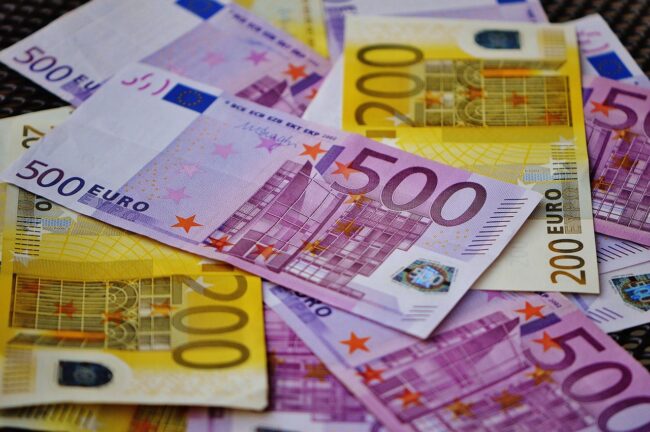The euro’s sharp rise against global currencies—up 13 per cent against the dollar since January, 10 per cent against the yuan—has thrust the European Union into a policy quandary. The rules of the bloc’s protocol threaten to undermine its own currency.
The European monetary dilemma is as easy to sum up as it is difficult to solve. While a stronger currency reflects confidence in Europe’s economic prospects, its surge risks undermining exporters already battered by US tariffs and Chinese competition. At the heart of the debate lies China’s alleged currency manipulation, which analysts warn could turbocharge a “China shock” for European industry.
Yuan’s shadow
China’s exports to the EU rose again in July, even as its imports from Europe fell. The yuan’s depreciation in real terms—estimated at 40% against producer prices since 2020 by Germany’s IW Cologne—has tilted the playing field. “A significant part of European firms’ competitive disadvantage vis-à-vis China is due to the yuan’s undervaluation,” says Jürgen Matthes of IW Cologne.
Countries are still bound by tariffs, but this can be completely offset by exchange-rate manipulation. — Joost Pauwelyn, Co-Director of the Centre for Trade and Economic Integration
The EU’s trade deficit with China is widening, yet the bloc hesitates to act. Brussels insists currency matters fall to the European Central Bank (ECB), while the ECB argues exchange rates are a trade-policy issue.
The legal path to countering currency manipulation is fraught. WTO rules require the International Monetary Fund (IMF) to label a country a manipulator—a rare step, particularly for China, which shields reserve data. Joost Pauwelyn, a Geneva trade-law professor, notes the system’s flaw: “Countries are still bound by tariffs, but this can be completely offset by exchange-rate manipulation.” The EU could instead treat yuan depreciation as a subsidy, following America’s lead since 2020. “The EU could essentially do the same. All it would take is a more flexible reading of its anti-subsidy regulation,” says Mr Pauwelyn.
Dollar dominance in doubt
Such a move would escalate tensions. Beijing rejects claims of manipulation, and Brussels fears provoking retaliation. For now, the European Commission prefers sectoral anti-dumping measures, letting firms seek tariff reassessments if Chinese import prices stagnate. Critics call this timid. “We cannot be slaves to our own rules if they prevent us from adequately offsetting an obvious market distortion,” argues Mr Matthes.
The euro’s strength is not solely China’s making. Germany’s infrastructure pledges and US political uncertainty have buoyed the currency. Meanwhile, global investors eye alternatives to the dollar. Currency Research Associates warns that dollar exposures among pension funds and insurers are “frighteningly large”, with Taiwan holding over 90% of its GDP in greenbacks. Donald Trump’s threats to Fed independence add to jitters.
You might be interested
At a recent CEO conference, 18 of 29 global leaders said they would prefer Eurobonds to US Treasuries—if such instruments existed. “If Europe could truly recommit to integration, fix its capital markets, and offer investors the scale they need to diversify, the euro would soar,” noted Rana Foroohar of Financial Times. Yet progress remains sluggish. The EU’s capital markets union, stalled for years, epitomises the gap between ambition and reality.
A fork in the road
Brussels faces twin challenges: addressing immediate distortions from yuan weakness and seizing the euro’s long-term potential. Tariffs calibrated to offset currency misalignment—exempting goods Europe doesn’t produce—could shield industry without sparking a broader trade war. But political will is scarce.
We cannot be slaves to our own rules if they prevent us from adequately offsetting an obvious market distortion. — Jürgen Matthes, head of Research Unit International Economics and Economic Outlook at Cologne Institute for Economic Research
For Sander Tordoir of the Centre for European Reform, the stakes are clear. Without action, Europe risks a “China shock in hyperdrive”. Yet overreach could destabilise ties with Beijing. Meanwhile, the dollar’s vulnerabilities offer the euro a historic opening—if Europe can unshackle its financial markets. The path ahead demands pragmatism and boldness. For a bloc often paralysed by division, that may prove the toughest currency adjustment of all.











